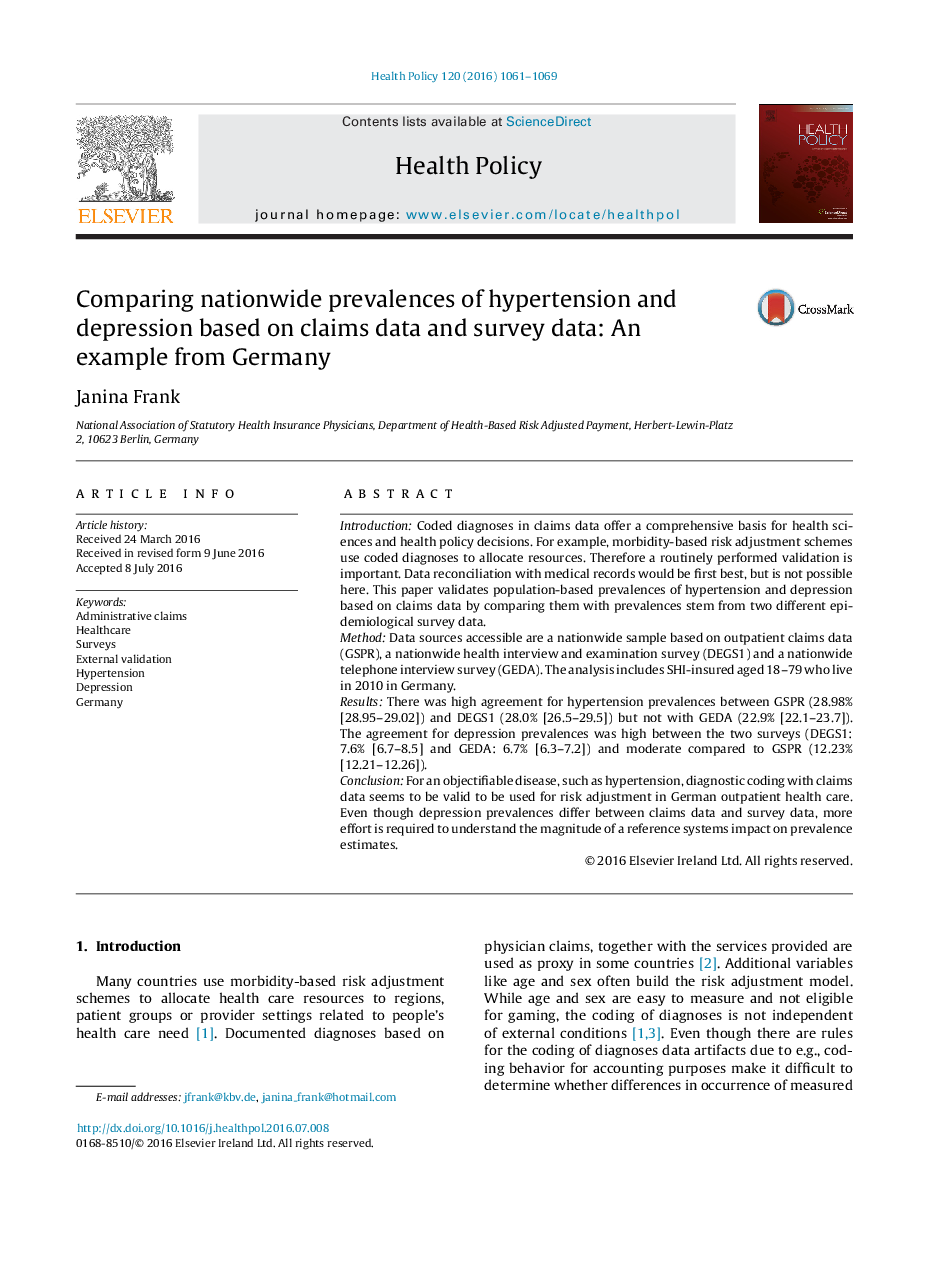| کد مقاله | کد نشریه | سال انتشار | مقاله انگلیسی | نسخه تمام متن |
|---|---|---|---|---|
| 5723524 | 1411454 | 2016 | 9 صفحه PDF | دانلود رایگان |
- Hypertension prevalences agreed between claims and survey data with blood pressure measurement.
- Depression prevalences agreed between both surveys but not with claims data.
- The gain in information adding PHQ-9 screening information to self-reports is moderate.
- Diagnostic coding with claims data seems valid for objectifiable diseases as hypertension.
- Comparing prevalences should take into account the relativity of morbidity.
IntroductionCoded diagnoses in claims data offer a comprehensive basis for health sciences and health policy decisions. For example, morbidity-based risk adjustment schemes use coded diagnoses to allocate resources. Therefore a routinely performed validation is important. Data reconciliation with medical records would be first best, but is not possible here. This paper validates population-based prevalences of hypertension and depression based on claims data by comparing them with prevalences stem from two different epidemiological survey data.MethodData sources accessible are a nationwide sample based on outpatient claims data (GSPR), a nationwide health interview and examination survey (DEGS1) and a nationwide telephone interview survey (GEDA). The analysis includes SHI-insured aged 18-79 who live in 2010 in Germany.ResultsThere was high agreement for hypertension prevalences between GSPR (28.98% [28.95-29.02]) and DEGS1 (28.0% [26.5-29.5]) but not with GEDA (22.9% [22.1-23.7]). The agreement for depression prevalences was high between the two surveys (DEGS1: 7.6% [6.7-8.5] and GEDA: 6.7% [6.3-7.2]) and moderate compared to GSPR (12.23% [12.21-12.26]).ConclusionFor an objectifiable disease, such as hypertension, diagnostic coding with claims data seems to be valid to be used for risk adjustment in German outpatient health care. Even though depression prevalences differ between claims data and survey data, more effort is required to understand the magnitude of a reference systems impact on prevalence estimates.
Journal: Health Policy - Volume 120, Issue 9, September 2016, Pages 1061-1069
